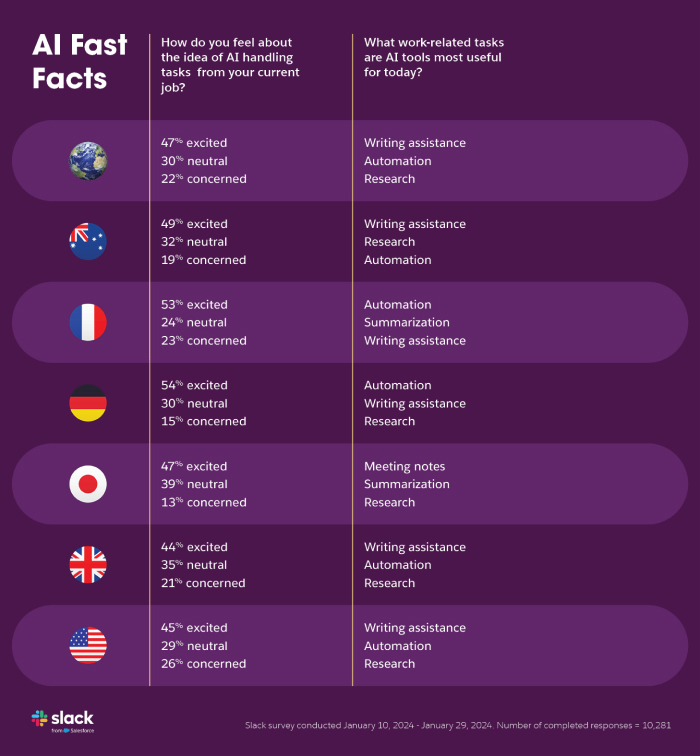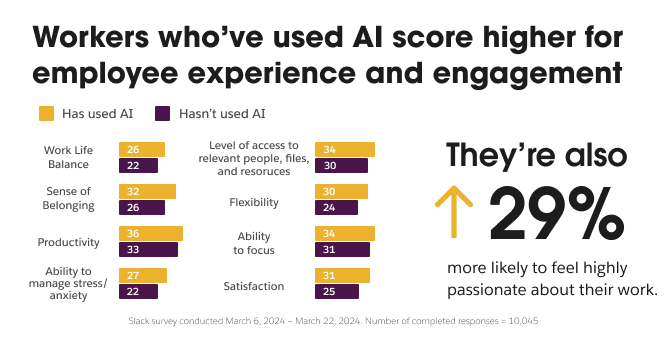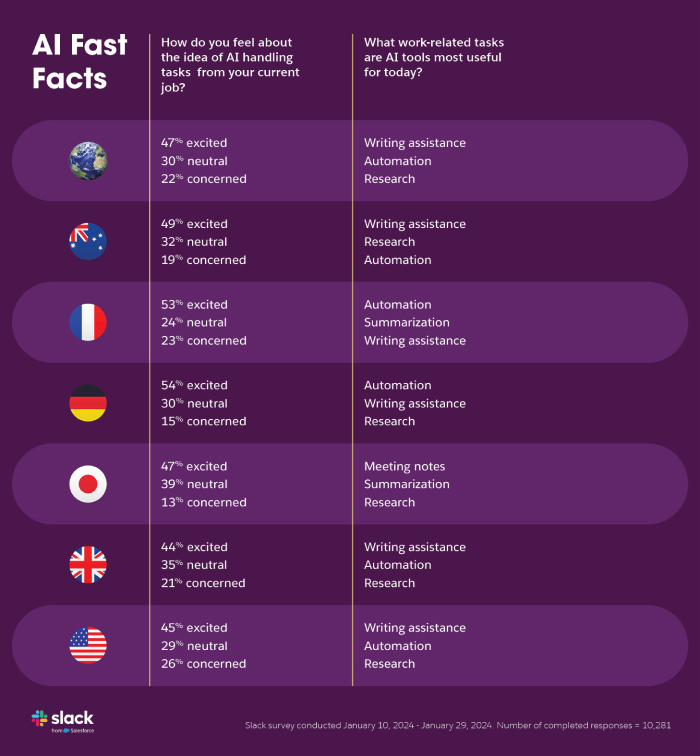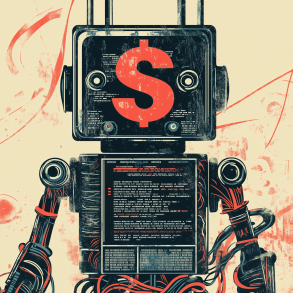A recent survey by Slack’s Workforce Lab reveals a significant rise in AI usage among desk workers, with a 23% increase since January 2024 and a 60% jump since September 2023. This surge is linked to enhanced productivity.

The survey included over 10,000 global desk workers, primarily in executive, senior, middle, and junior management roles, who are employed full-time (30+ hours per week) and work with data, analyze information, or engage in creative thinking, as per Workforce Lab’s criteria.
According to the findings, 81% of AI users reported that AI tools boosted their productivity and work quality. Additionally, these workers showed higher scores in various engagement metrics:
- +13% in access to relevant resources
- +18% in work-life balance
- +23% in stress management
- +24% in overall job satisfaction
- +25% in flexibility
- +29% in passion for their work

The survey highlights a growing urgency among executives to integrate AI into business operations, now a top concern surpassing inflation and economic factors. Seventy-three percent of desk workers believe AI hype is justified, foreseeing a significant impact. Enthusiasm for AI has grown, with 47% of global desk workers now eager to use AI for job tasks, up from 42% earlier this year.

The enthusiasm for AI varies by age and gender. “The youngest workers show the most enthusiasm for AI, with 55% of workers ages 18 to 29 saying they’re excited for AI and automation to handle parts of their work, compared with 33% of workers over age 60,” the survey notes.
Research indicates that AI’s benefits extend beyond productivity. Companies leveraging generative AI for customer initiatives could see a 25% revenue increase over five years compared to those focusing solely on productivity, according to Accenture. Marketers also prioritize AI for personalization and efficiency, with one in three marketing teams already implementing AI, as per the 2024 State of Marketing report.
Despite these benefits, the Slack survey found that two-thirds of desk workers have not yet tried AI tools. While nearly half express enthusiasm, 93% do not fully trust AI outputs for work tasks. Additionally, AI could help reduce time wasted on non-essential tasks like unnecessary meetings and excessive paperwork. Yet, the survey suggests that instead of using saved time for strategic activities, employees might spend 37% more time on routine administrative tasks, indicating a missed opportunity.
Burnout remains a significant issue, with 64% of desk workers experiencing it monthly and 30% lacking passion for their jobs. AI adoption could potentially alleviate these issues by offloading some tasks.
Successful AI implementation at work depends on several factors:
- AI training: Trained employees are 19 times more likely to report productivity improvements and seven times more likely to trust AI tools.
- Leadership trust: “Desk workers who feel trusted by their employers are 94% more likely to have tried AI for work-related tasks, and they’re also more trusting of AI’s accuracy and reliability,” the survey states.
- Confidence and reliability: Only 15% of workers feel they have the necessary education and training to use AI effectively. Better context and information could help.

Integrating AI into desk employees’ workflows offers many benefits. However, successful adoption requires the right company culture, talent, processes, and training. All AI projects start as data projects, and a data-driven culture that values trust and shared success will ultimately determine the speed of AI implementation.









